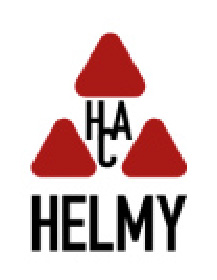Frequently Asked Questions
Thermoforming is the process of shaping flat sheets or rolls of plastic into plastic parts through the use of heat and pressure. A secondary trimming process may be required to achieve the final product. The trimmed material is reground and recycled.
Vacuum formed parts are made by applying a strong vacuum between a heated thermoplastic sheet and a molding surface. Pressure formed parts are made using the same principle, but by simultaneously pressuring one side of the sheet, while inducing vacuum on the other side.
Thermoforming has several advantages over other processes. Economical prototyping, low cost tooling, short lead times, and the ability to R&D are some of them. Thermoforming is efficient and very cost effective and allows for the replacement of many costly glass, metal or fabricated parts.
Thin gauge forming is usually used for packaging parts such as blisters or clamshells, disposable parts such as trays and inserts and temporary displays. Thin gauge plastic ranges between 0.001″ – 0.06″ and is formed on automated high speed in-line machines. Parts are trimmed on automated hydraulic trim presses or roll die trim presses.
Heavy gauge forming is used for a wide variety of products including P.O.P. Displays, enclosures, housings, panels, structural and functional products. Heavy gauge plastic ranges from 0.06″ – 0.50″ and is formed on either automated or hand fed machines. Parts are usually CNC trimmed to ensure consistent trim results.
Helmy has the capability to form both thin and heavy gauge.
Helmy can form most types of plastics including ABS, HIPS, PS, HDPE, HMWPE, PP, PET, PETG, and PVC. Helmy will match custom colors and custom textures and will specify other requirements such as FDA approved medical and food material, electrostatic discharge material, and fire retardant material.
Three types of tooling are commonly used:
Machined Aluminum Molds – are usually produced on CNC machines from generated CAD files and can be either male or female. They hold very close tolerances and can be mounted on temperature control bases and used with or without plug assist molds.
Cast Aluminum Molds – are usually used for parts with large draw ratios and can be either male or female. They are cast at a foundry from a pattern machined or built by Helmy from wood and composite material. They can also be mounted on temperature control bases and used with or without plug assist molds.
Temporary Molds – are usually made for prototyping and short production runs. These molds are usually made from wood or composite material and are cost efficient. They normally produce prototype parts that are used to judge fit, form and functions and to establish the required R&D before going to final productions.
Helmy prides itself on doing everything in-house therefore providing customers with efficiency and quick lead times. A typical project can take anywhere between 4-10 weeks to start production. However, lead times can vary based on the complexity of the projects, the lead time of raw materials and the needs and requirements of each customer. Helmy regularly completes projects in 2-4 weeks lead time but has also collaborated with customers on other projects for months before going to final production.
The typical steps to a project are as follows:
Design Stage: If a customer has their own design and drawings, this step is eliminated. If not, Helmy can take their ideas and specifications and generate several design concepts and 3D presentations for their approval. Once a concept is approved, mold engineering drawings are generated.
Prototyping Stage: If required by customer, a prototype mold is generated and samples of the parts are made to judge fit, form, and function and to determine applicable plastic material and color. R&D is done at this stage.
Final Tooling Stage and Material Ordering: Precision Aluminum tooling and all forming and trim fixtures are made and material is ordered based on the size of the tooling.
Production: Upon arrival of custom extruded material, production commences. First time production runs usually take a longer time than re-runs since it takes time to register and document the machine and the set-up procedure.
Shipping: Products are shipped either in one lot or warehoused for lot releases as established by customers.
Because our education is in design and engineering. Our +20 years experience is in challenging and quality plastic thermoforming. Our desire is to help make every customer successful. Because if our customers are successful, we are successful.

